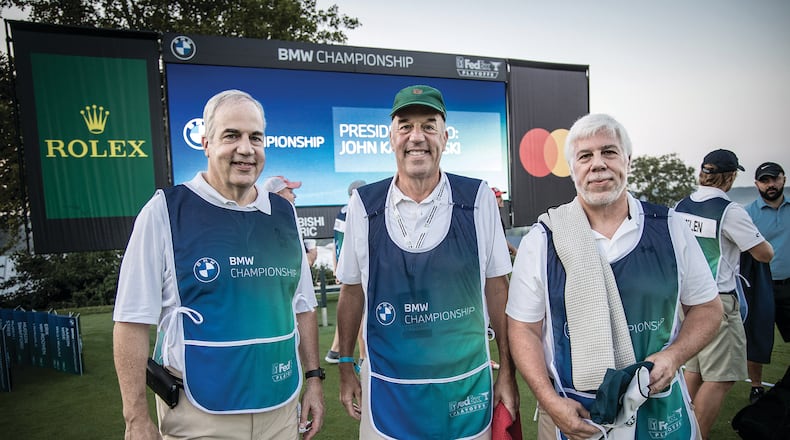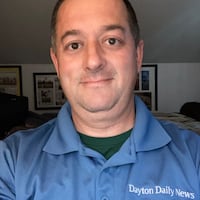“I’m honored by the opportunity to lead the WGA, an organization that has been a significant part of my family’s life,” Desch said in a press release. “It has not only been transformative in the lives of countless young men women, but also in the game of golf. Our prestigious championships are best-in-class, and the Evans Scholars Foundation continues to provide life-changing opportunities for thousands of caddies, just as it did for me and my brothers.”
One of the top priorities of the WGA is running the Evans Scholars Foundation, which helped Desch go to Miami University and has helped 11,556 students graduate from college since 1930.
How did Desch get the scholarship then?
“I’d say it was because I was a great caddy, but no, it’s a financial-need scholarship,” Desch said Wednesday in a Zoom interview. “My oldest brother Chris found out about the scholarship when he was caddying at Dayton Country Club.”
Joe was the fourth Desch brother to win the scholarship. Chris Desch won it in 1972. Three years later, Matt Desch won the scholarship. In January 1979, David Desch followed, and in December 1979, Joe Desch got his turn.
Once the brothers saw it as a way to go to college, “pretty much four more boys were going to be right behind (Chris),” Joe said. He thought the family’s financial situation was fine then, but said they would have probably be considered lower middle class.
A Dayton Daily News story from Dec. 12, 1979, told of Desch winning the scholarship. It was worth $6,000 then and covered full tuition and housing. More than 200 scholarships were awarded annually then. The scholarship is named after Chick Evans, a famed amateur golfer, who created the program in 1930.
Caddying was a seven-day-a-week job when the brothers worked at Dayton Country Club. It was a good job but also allowed them to play golf on Friday.
“Caddying was a great job as a kid and none of us would realize the incredible impact it would have on our lives 30 years later,” Joe said in 2017. “DCC was a great nurturing environment with all kinds of wonderful people and characters. Jimmy Gilbert (a longtime DCC pro) hired each one of us after a couple of years of caddying and we all worked in his shop. There was a Desch in the bag room at Dayton Country Club from 1972-1987.”
Credit: Charles Cherney
Credit: Charles Cherney
Desch turned his Evans Scholarship into a marketing degree at Miami in 1984. He worked 35 years in the marketing, communications and commercial printing industries and founded PrintManagement in 1999. He has been involved with the Western Golf Association for decades and became a WGA Director in 2001. He served as the WGA State Chairman in Ohio for 10 years and the vice president of the WGA the last two years.
Desch’s term as WGA chairman — he’s the 69th in the organization’s history — will last two years. He succeeds Kevin Buggy of Park Ridge, Ill.
In addition to the Evans Scholars Foundation, which this year has 1,070 students enrolled at 21 universities nationwide, the WGA runs tournaments. The PGA Tour’s BMW Championship is one of its events. It also runs men’s and women’s amateur championships.
Centerville graduate Marissa Wentzler won the prestigious Western Amateur last summer. Desch signed a letter this week trying to get her into the Augusta National Women’s Amateur, which will be held March 30-April 2.
At this time of year, working on picking the students who will win scholarships is a big part of Desch’s job.
“I sit in on the interviews, so yesterday we had 11 interviews for scholarships in the state of Colorado, and next week, we’ll do the state of Indiana,” Desch said. “Normally, it would be in a big room with 100-150 people and donors and people from clubs. It’s a neat way to get to know these finalists for the scholarship.”
About the Author


